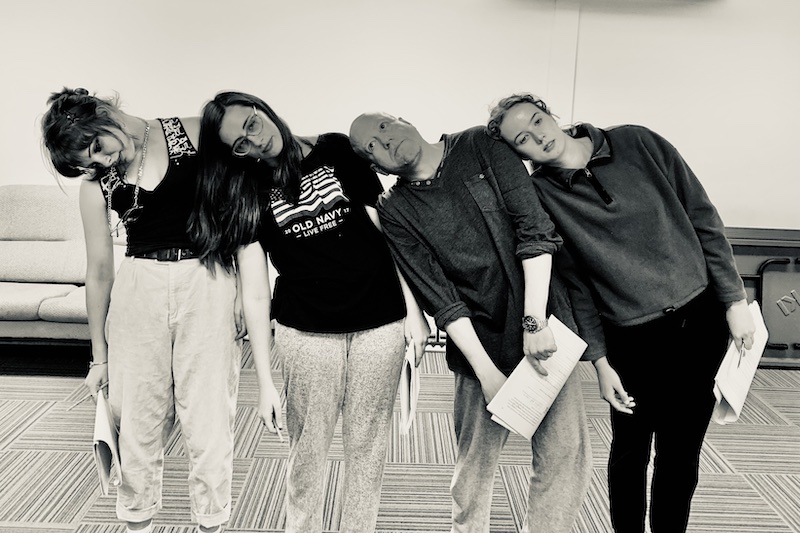Making its world premiere at Fringe World 2022, The Almost Completely Terrible Tale of Felicity Footin is a didactic fable that makes a mockery of the modern workplace.
A tale of working 9 to 5
27 January 2022
- Reading time • 6 minutesTheatre
More like this
- How to choose your Fringe World shows
- Sparkling piano bar just the tonic
- Two exhibitions too good to resist
What will be the fate of Felicity Footin — a young girl climbing the corporate ladder of a topsy-turvy soft toy company that favours poor communication and ambiguity over transparency and clarity?
In her Festival Sessions interview with Isabella Corbett, the show’s writer and director Jane Hille explains why there’s a little bit of Felicity Footin in all of us, and how the show may be the push we need to change our own practices at work.

Isabella Corbett: For Seesaw Mag readers who don’t know you, Jane, can you tell us a bit about yourself and your work?
Jane Hille: I’m an independent theatre-maker and the director of Fenceline Theatre Company. I love the process of bringing something to life, seeing it take shape and working with other creatives to watch how “text” comes to fruition.
IC: Tell us about the work you are presenting at Fringe World 2022.
JH: The Almost Completely Terrible Tale of Felicity Footin is a contemporary “human fable” about the working world. Felicity works at the corporate level of a soft toy company; she’s new and finds the management and communication styles different from the “cultural myths” she grew up with.
Felicity does her best to embrace the company motto — “no sharp edges” — but her personality becomes more ambiguous, and she starts to sweep things under the company carpet. Meanwhile, her true love, Fergus Forthwith, is unsure whether Felicity is still the same girl he fell in love with. To be successful, she must take on the company motto and embrace ambiguity and her “soft edges”.
The play satirises the passive-aggressive working world where communication has become completely obscured and uses some of the literary elements of a fable: it’s short, didactic, and has two-dimensional characters and an implicit moral.
IC: What inspired you to write and direct The Almost Completely Terrible Tale of Felicity Footin?
JH: If you’ve ever had a bad day at work — or you’ve watched someone else have a bad experience — it’s interesting to reflect on what exacerbated the situation. Inevitably, it’s about poor communication and a lack of transparency.
IC: What makes your show different to all the others on offer at Fringe?
JH: It’s vibrant, eclectic, and has a clever cast. It’s a familiar story told in a new way.

IC: What do you hope audiences will take away from your show?
JH: A moment in time, where they are transported elsewhere, absorbed with someone else. We all know a Felicity Footin: she falls within the framework of our experiences. Onstage these adventures are exaggerated, but laughing at our own folly is a good way for us to change.
IC: How has the COVID-19 pandemic influenced the show?
JH: I wrote the show just before COVID-19 took the world captive, and I remember thinking how different things might be after it was all over. I hope some of the differences involve holding onto the “false cultural myths” alluded to in the show, for they are in fact the glue and substance that hold society together. Without them, we are in danger of finding ourselves unrecognisable, and that would be a great shame.
IC: What is your favourite part of the playground?
JH: Tough question. I loved the seesaw, swings, and slide.
Pictured top: Felicity Footin thought workplaces thrived on clear, concise communication and effective management, but she couldn’t be more wrong. Photo: supplied
“The Festival Sessions” is an annual series of Q&A interviews with artists who will be appearing in Perth’s summer festivals. Stay tuned for more!
Seesaw offers Q&As as part of its suite of advertising and sponsored content options. For more information head to https://www.seesawmag.com.au/contact/advertise
Like what you're reading? Support Seesaw.






